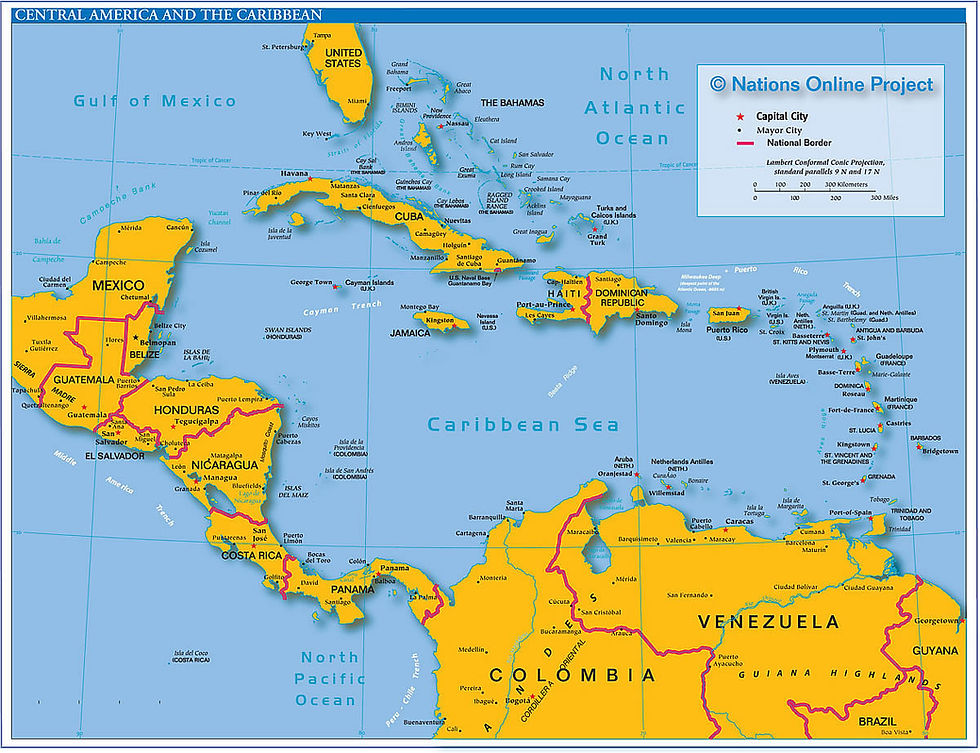5 Carib Nations Offer Citizenship for Investment
- Mark Dworkin
- Aug 1, 2025
- 3 min read
Updated: Aug 4, 2025
A.J. Pike

The Blue Waters of the Caribbean -
Five Eastern Caribbean nations: Antigua and Barbuda, Dominica, Grenada, St. Kitts and Nevis, and St. Lucia, are attracting increasing numbers of investors through their Citizenship By Investment (CBI) programs. These legalized schemes, which are under close scrutiny, allow individuals to obtain citizenship and a passport in exchange for investments starting at $200,000.
As a prospective buyer scrolls through “Homes for Sale” in the Eastern Caribbean region, it is no longer just a bewitching experience that involves visions of Jimmy Buffett in Margaritaville, or white sandy beaches and an office under a palm tree, with its required laid-back lifestyle, that is meant to woo potential buyers. Fueled by the political unrest and social volatility in the States, increasing numbers of property listings are also offering a passport a la citizenship.
Buy a home and receive a passport that grants the holder visa-free access to up to 150 countries including Europe’s Schengen zone, and for all but Dominica, access to the UK as well.
For the wealthy, these Caribbean islands with their absence of taxes such as capital gains and inheritance, and in some cases an absence of income taxes, is another major draw, besides the CBI, to make the investment. Plus all five of the islands allow buyers to retain their existing citizenship.
While the programs require no residency, some buyers are choosing to relocate permanently. Real estate purchases remain the most common investment route but alternative options include donations to national development funds.
The CBI programs have become vital sources of revenue for these small economies, accounting for up to 30% of GDP in some cases. Funds generated have supported infrastructure development, healthcare facilities, and recovery efforts after natural disasters.
In Antigua, estate agents are struggling to keep up with demand. “Up to 70% of all buyers are wanting citizenship,” says Nadia Dyson, owner of Luxury Locations. “The vast majority are from the US. We don’t talk politics with them, but the unstable political situation in the States is definitely a factor.”
The ease-of-travel advantages for Caribbean passports also provides a significant appeal to businesspeople, along with presenting a security benefit given the shaky status of the US reputation in some parts of the world today.
“Everything from gun violence to antisemitism is putting Americans on tenterhooks,” according to Investment Migration experts Henley & Partners. “Some US clients prefer to travel on a more politically benign passport nowadays,”
Leaders of other Caribbean nations that do not offer CBIs are quick to criticize.
“Citizenship should not be a commodity for sale,” said St. Vincent and the Grenadines Prime Minister Ralph Gonsalves.
Among the international community there is concern that lax oversight of the CBI program may help criminals get through borders they were previously unable to enter. The European Union has threatened to withdraw its coveted visa-free access for Caribbean CBI countries. A European Commission spokesperson said they are monitoring the five Caribbean schemes and are in talks with their respective authorities.
The US has previously raised concerns over the potential for such schemes to be used as a vehicle for tax evasion, money laundering and financial crime.
For their part, the five Caribbean nations have reacted angrily to claims that they are not doing enough to scrutinize applicants. Nevertheless, they are all in the process of carrying out reforms on the program by introducing stricter oversight measures, such as enhanced applicant due diligence, mandatory interviews, regular audits, and the creation of a regional regulator. These steps aim to safeguard the programs’ integrity while maintaining their economic benefits.



